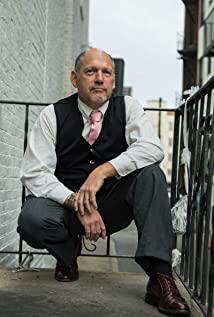Donate to the circle
Originally, I didn't have such a cold with woody allen. I even wanted to kill the male protagonist who was like a whining little bitch in the first 30 minutes. But when I saw that Abe suddenly decided to kill the judge who had never met him, he suddenly realized !
I have to say that the threshold for watching this movie is quite high. In the movie, there seem to be countless clues hidden in the gray lines of grass snakes, and these clues require a lot of philosophical text reading to unlock them one by one and reach a climax.
Keywords: Unprovoked Evil (Saint Augustine - Judge Augustus)
In St. Augustine's confession, he mentioned such a story:
"There is a pear tree near my vineyard, and the fruit on the tree is unpleasant in appearance and smell. Our group of young bad guys are used to playing games on the street until late at night; Shake it down and take it away. We took a lot of booty, not to chew it, but to feed the pigs. We tasted a few, but we did it because it was not allowed. "
Augustine said that they did not steal pears because they wanted to eat them. The fruit they stole was fed to pigs and crushed with their feet. They enjoyed the evil pleasure of this "prank" itself.
I don't believe it's a coincidence that the judge's middle name is Augustus, there are too many "coincidences" like that in this movie. The logic of each of their philosophers first intertwined with each other, but also supported each other. When it is dizzying, it is very addictive and sighs: What a tangled web we weave! (Sir Walter Scott, Marmion)
For example, the pseudonym here is Kierkegaard's favorite way to express different views. In Fear and trembling, he is Johannes de Silentio, and in Sickness unto death, he is Soren Kierkegaard. Contrast I believe that the director used the before and after comparison of the protagonist, and the representative work that promotes this transformation is: Judge Augustus.
In the case of Augustus, the protagonist does not have any intersection with the judge in theory, which constitutes the big stage of "Unprovoked Evil", and provides a scene for the protagonist to find his Zest after "take the leap of faith" .
Keywords: Leap of faith (Soren Kierkegaard)
Leap of faith is one of the most important cornerstones of understanding Kierkegaard's beliefs, starting with his Fear and Trembling with Abraham's dedication to Issac, with this romantic sadness like Moby Dick's captain at the end welcoming his destructive end.
His core logic is: Faith is higher than our rational life. If everyone says that a person is a bad person, so you think he is a bad person, you don't need a faith, just accept it.
Only when your cognition deviates greatly from the environment around you, you still choose your own opinion, this is called belief. When a person is cast aside by thousands of people, you still support him, why? Because You have faith on him. Everyday life is boring and we need absurdity.
In the movie, after drinking orgasm day after day, the male protagonist finally became impotent because zest is gone. But after he really accepted the fact that he was going to kill the judge and act like Abraham sacrificed his only child Isaac, everything came back.
Keywords: possibility prevails actuality (Martin Heidegger/phenomenology/existentialism)
The protagonist keeps saying he's writing a book about Heidegger, and complains all the time about the meaninglessness of writing it. On the surface, the audience may think it is just a simple term, but if you really understand phenomenology and Heidegger, you will find the subtlety of this foreshadowing.
One of the most important concepts in phenomenology is Dasein, "Being". How can we know that we really exist? The answer is to be (Zu-sein). To live is to feel, to change, to be. To be in the world is to being in the world. This also means that the future possibility is far more important to phenomenology than reality.
When the protagonist is trapped in a constant cycle like the day of the groundhog, his existence has been greatly reduced, he is deeply aware of this, but cannot change this slow Slowly moving towards the process of destruction and demise, that's why he is complaining about himself. It also laid a foreshadowing for the future transformation of existence precedes essence (killing the judge), that is, do it first, and then give it meaning after doing it. This makes life a lot easier for the protagonist.
All in all, what this movie shows to ordinary audiences is just the tip of the iceberg. Your rating for this movie is directly proportional to your familiarity with mainland philosophy. (At the same time, it is also the gospel of the vast number of hanging bookbag friends
View more about Irrational Man reviews











